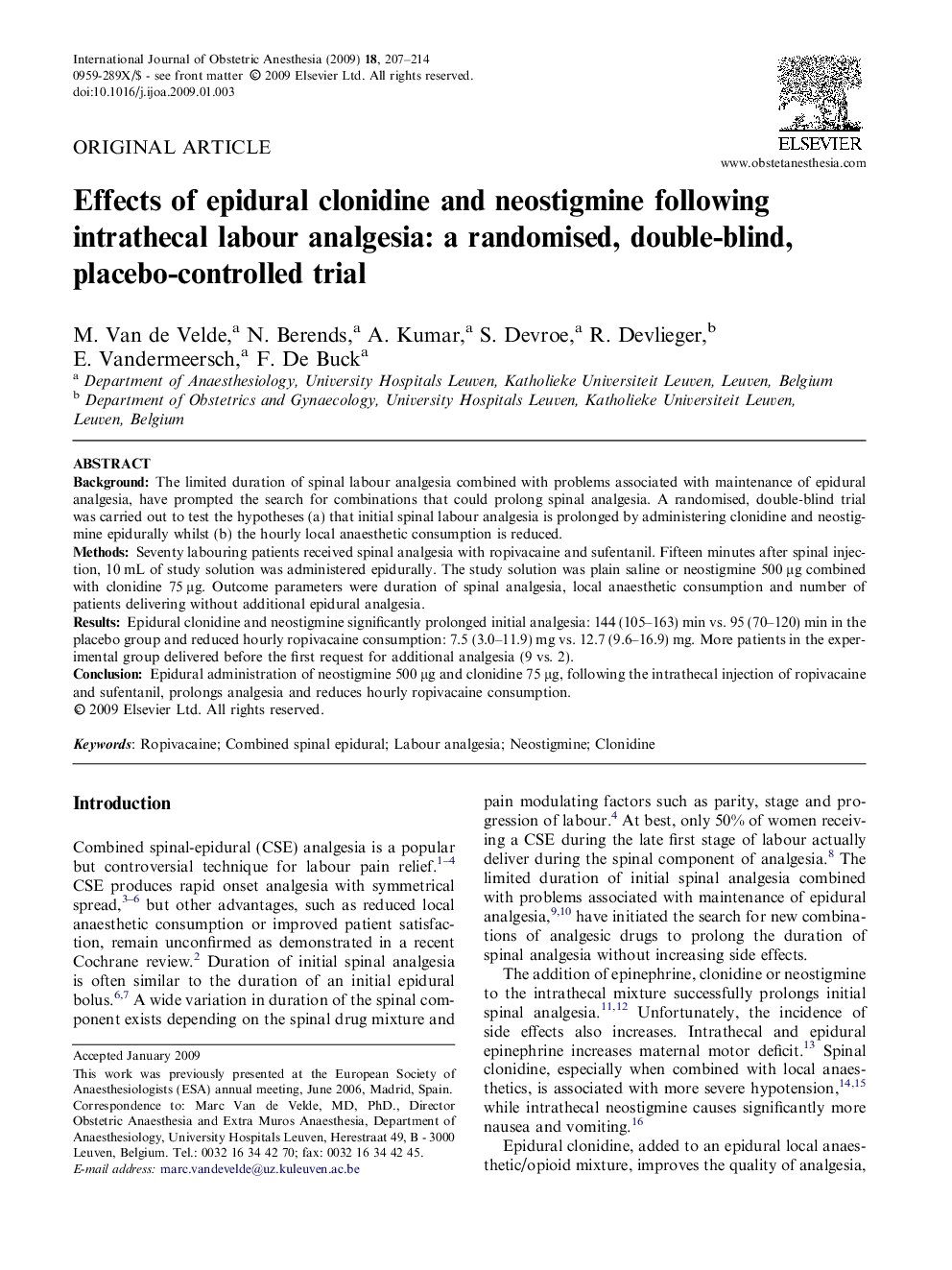| Article ID | Journal | Published Year | Pages | File Type |
|---|---|---|---|---|
| 2758425 | International Journal of Obstetric Anesthesia | 2009 | 8 Pages |
BackgroundThe limited duration of spinal labour analgesia combined with problems associated with maintenance of epidural analgesia, have prompted the search for combinations that could prolong spinal analgesia. A randomised, double-blind trial was carried out to test the hypotheses (a) that initial spinal labour analgesia is prolonged by administering clonidine and neostigmine epidurally whilst (b) the hourly local anaesthetic consumption is reduced.MethodsSeventy labouring patients received spinal analgesia with ropivacaine and sufentanil. Fifteen minutes after spinal injection, 10 mL of study solution was administered epidurally. The study solution was plain saline or neostigmine 500 μg combined with clonidine 75 μg. Outcome parameters were duration of spinal analgesia, local anaesthetic consumption and number of patients delivering without additional epidural analgesia.ResultsEpidural clonidine and neostigmine significantly prolonged initial analgesia: 144 (105–163) min vs. 95 (70–120) min in the placebo group and reduced hourly ropivacaine consumption: 7.5 (3.0–11.9) mg vs. 12.7 (9.6–16.9) mg. More patients in the experimental group delivered before the first request for additional analgesia (9 vs. 2).ConclusionEpidural administration of neostigmine 500 μg and clonidine 75 μg, following the intrathecal injection of ropivacaine and sufentanil, prolongs analgesia and reduces hourly ropivacaine consumption.
